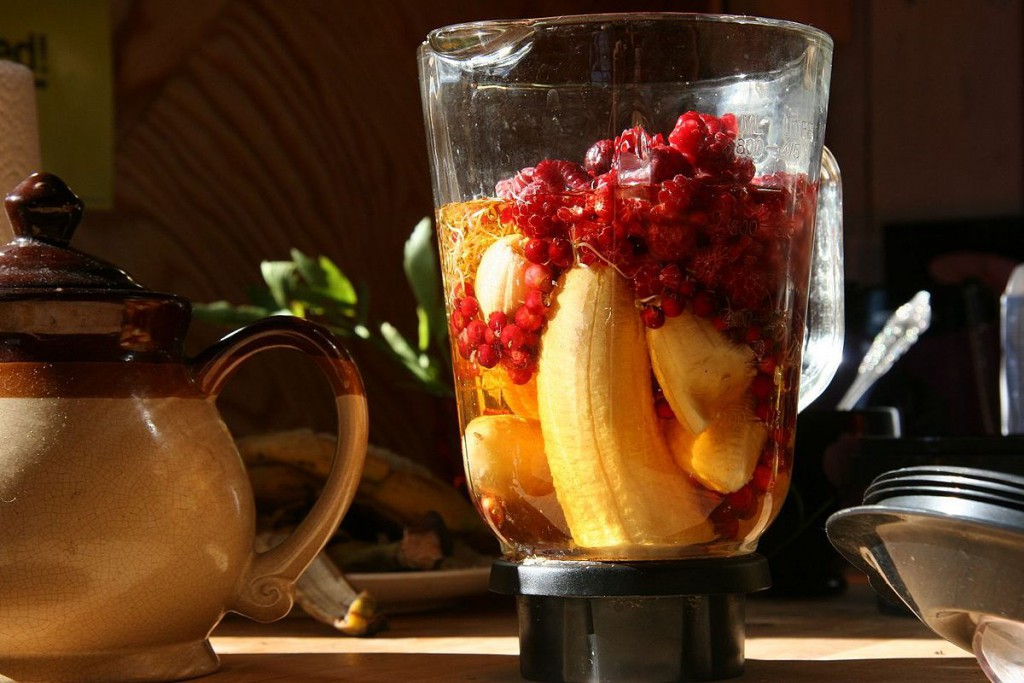Why Fueling Your Body Before Practice is Critical

By Meaghan Raab, Swimming World College Intern.
The dreaded sound of your alarm for morning practice wakes you up at 5 a.m. You are tired and going through the motions of getting ready without being fully awake. After sleeping for several hours and partaking in an overnight fast, your body is hungry and needs fuel before your workout. Eating a full breakfast is not going to happen in the 30 minutes you have before you have to dive into a cold pool, but eating a small snack is quick and easy.
According to Jacqueline Berning’s article “Breakfast and Recovery Strategies for Swimmers,” not eating or skipping a meal before exercise, especially after nighttime of not eating, can inhibit the athlete’s ability to train and compete.
Nutrition is a key part of any athlete’s training. You must provide your body with adequate carbohydrates, proteins, fats and fluids to get the most out of your workouts and enhance ability to perform.
The ideal fueling scenario would be eating a full meal two to three hours before your workout, but in the case of the commonplace morning practices at the crack of dawn, eating a full meal is not attainable. But that doesn’t mean you shouldn’t eat at all. You need to find what is possible for you.
Pretend your body is a car. According to Riska Platt, a nutrition consultant at Mount Sinai Medical Center, you wouldn’t drive a car without gas in the tank, so why would you work out without fueling your body first?
The closer to the workout, the simpler the foods you are eating should be. Some good and easy on the body options are granola, fruit, slices of toast or nutrition bars. You can make your own ready-to-eat breakfast options or you can buy something pre-made. The most important thing is that you are eating something.
The key to fueling your body for those early morning workouts is finding something that you like and something your body can tolerate in the time crunch between waking up and beginning your exercise. For some people a small granola bar may be all they can handle, but for others a bowl of oatmeal with banana is their breakfast of choice.
Eating is important, but don’t forget to hydrate! Staying hydrated helps enhance and sustain performance. You will want to add a drink that contains sodium to helps retain fluid and prevent fluid loss.
But wait, what do you do to fuel your body after practice? The answer is simple. Hydrate with lots of water and add fruit juice if you desire, and replenish your system with carbohydrates and protein to help start the recovery process and repair your muscles.
After swimming, you should eat a meal within one hour in order to maximize recovery potential and begin the growth and repair processes which need to take place. You will need both carbohydrates and protein. Carbs are the main fuel of your body, and protein repairs muscles and can decrease muscle soreness if consumed after a work out.
For breakfast, eggs, smoothies and yogurt are good options after practice. For lunch or dinner options you could have turkey burgers, grilled chicken with quinoa salad or lime and pepper chicken wraps. The choices are endless– you need to simply decide what to eat.
When it comes to fueling your body, there is no set in stone way to complete the task. There are suggestions on what to eat and when, but ultimately, the choice is yours. Listen to your body and give it what it needs. Knowing what to put in your body is just as important – if not more important – than what you do with it. Both will help you perform at your best.
All commentaries are the opinion of the author and do not necessarily reflect the views of Swimming World Magazine nor its staff.




John Griffin. Heres what we just talked about….
Anicée Heylemans-Demeur
Murron
Eloise Riley Isabella Riley
thanks mum!
Isabella Cesareo
Erin Braden Goss Zoe Goss
Gabby Loeck see that nutrigrain bar is important!